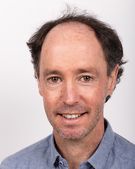INCLUDE - Implication of gender and sex on the combined effects of physical activity and air pollution exposure in patients with and without chronic respiratory disease
Project Abstract
Air pollution and climate change together with non-communicable diseases were the two top-ranked threats to human health in 2019. Over 70% of the diseases caused by air pollution are non-communicable diseases, the vast majority affecting the lung. Not surprisingly, chronic respiratory diseases (CRD) were considered the third global cause of mortality in 2019. Chronic obstructive pulmonary disease (COPD) and adult asthma stand out due to their high prevalence, morbidity and mortality.
In Switzerland, over 400’000 individuals suffer from COPD and every 14th adult is diagnosed with asthma. The origins of CRD lie in a combination of genetic predisposition, smoking, exposure to air pollutants, history of severe childhood respiratory infections, and low socioeconomic status. With no cure for CRD, pulmonary rehabilitation aims to increase physical activity to preserve quality of life.
Physical activity is considered one of the most effective, cost-efficient “weapons” in the management of CRD with reduced risk of exacerbations, all-cause mortality, and attenuated lung function decline. However, the health effects when concomitantly being exposed to physical activity and air pollution are poorly understood. Acute responses to physical activity, particularly higher breath-ing frequencies and volumes, might catalyze adverse effects of air pollutants due to a greater dose of inhaled air pollutants that enter the respiratory tree during physical activity. Once in the respiratory tree, pollutants can get absorbed into the systemic blood circulation, from where they can harm any organ.
Gender and sex dimensions have been vastly overlooked in answering the question of how phys-ical activity and air pollution jointly affect health in individuals with and without CRD. Despite progress, the scientific backbone on the benefits of physical activity is based on data from male study participants. Yet, well-documented sex differences in the conducting airways and lung size, and the shape of the ribcage result in a higher metabolic cost of breathing during physical activity at an equal relative intensity in females, which results in greater respiratory and leg fatigue when compared to males.
Females are also thought to be more susceptible to air pollutants because of greater inhaled doses due to the same anatomical sex-differences. Further, gender drives the health effects from physical activity and air pollution too. For example, gender is associated with exposure differences to occupational and residential air pollutants, cosmetics and cleaning products, and varying health behaviours, like the choice of type, amount, and setting of physical activity.
The objective of INCLUDE is to comprehensively study the implications of gender and sex on the combined effects of physical activity and air pollution exposure in older individuals with and without CRD with mixed methods. Specifically, in older individuals with and without CRD, we aim to: (1) qualitatively identify how gender and sex affect physical activity experiences in times of climate change and continued urbanization; (2) quantitatively determine how gender and sex dimensions affect the respiratory re-sponses to physical activity and air pollution; and (3) integrate identified gender and sex dimensions in physical activity contexts to generate healthy urban environments and physical activity recommendations that facilitate pulmonary rehabilitation.
At the intersection of the NRP 83 modules 1 and 3, INCLUDE will be a Basel- and Zurich-based project, rolled out adjacent to the already funded PANAMA study with data collection in Barcelona, Spain, and Nice, France resulting in an international, multi-disciplinary endeavour. Newly collected data within INCLUDE, will open a completely new avenue to comprehensively assess sex and gender differences in CRD.
